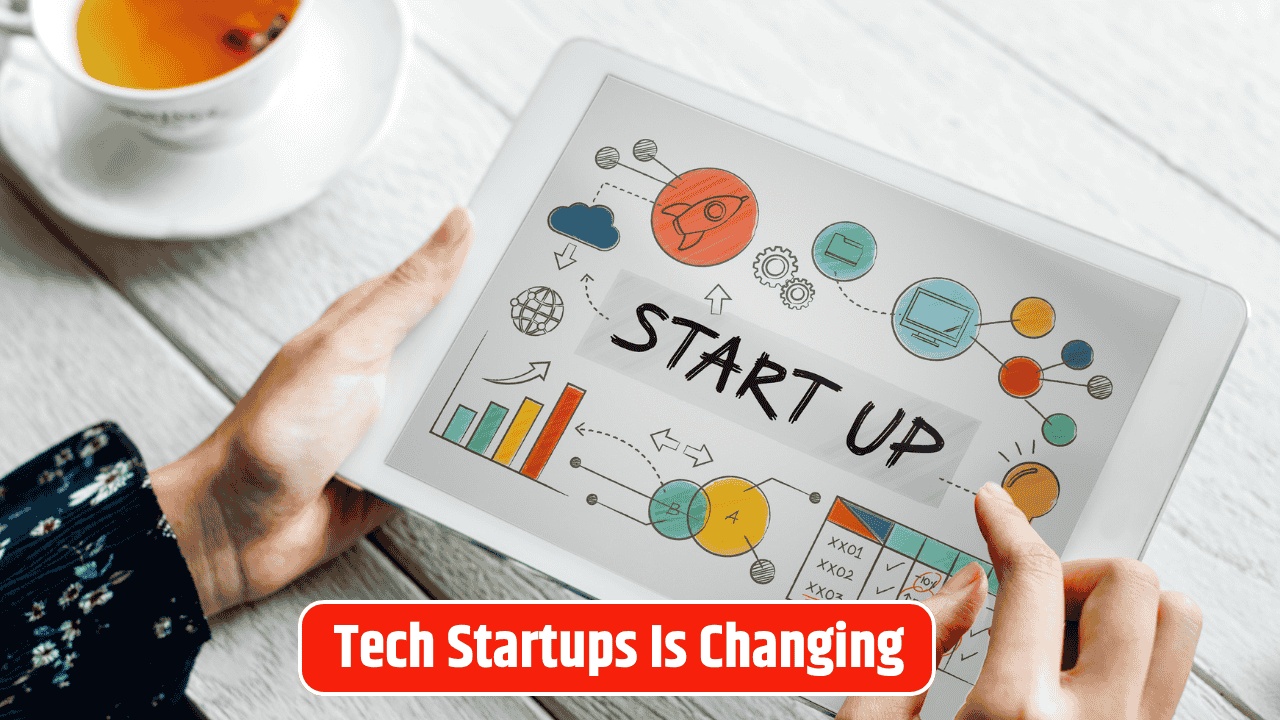Let’s not sugarcoat it. The startup scene ain’t what it used to be. Remember the hoodie-wearing, Red Bull-chugging founders of 2013, pitching “Uber for X” ideas out of WeWork offices? Yeah… those days feel like ancient history. In 2025, the tech startup ecosystem has taken a sharp left turn. Some say it’s growing up. Others say it’s selling out.
From “Move Fast” to “Move Smart”
The whole “move fast and break things” era? Pretty much DOA now. In 2025, breaking things gets you lawsuits, government fines, and TikTok callouts. Thanks to regulatory crackdowns across the U.S., Europe, and parts of Asia, founders are thinking less like disruptors and more like—wait for it—adults.
Even VC firms have pivoted. No more dumping millions into half-baked ideas run by Stanford dropouts with charisma and zero ops experience. Now, VCs want traction, actual revenue, and ideally… a business model that doesn’t rely on burning cash faster than a Diwali rocket.
TL;DR: Product-market fit is no longer optional. It’s table stakes.
AI Everything—But Make It Boring
If 2023–24 was all about slapping “AI” onto every pitch deck, 2025 is the year startups have to show their homework.
Just saying “we use AI” doesn’t get you funding anymore. Investors want to know: How? Why? Does it actually make you money or are you just piping ChatGPT into an app and hoping for the best?
The hottest startups aren’t just AI-enabled. They’re building boring, back-office tools: automating compliance for banks, optimizing supply chains, or creating smarter logistics for old-school industries. Sexy? Not really. Profitable? Hell yeah.
| Old School | 2023 Buzzwords | 2025 Startup Spin |
|---|---|---|
| Trucking | “AI for routing” | “Predictive logistics SaaS” |
| HR software | “AI-powered hiring” | “Human capital risk modeling” |
| Legal docs | “Doc automation” | “Regulatory AI infrastructure” |
Less Unicorns, More Cockroaches
In startup lingo, a unicorn is a private company worth $1B+. A cockroach, on the other hand, is a business that can survive anything. Guess which one investors prefer in 2025?
Startups now focus on survival. They raise smaller rounds, spend less, hire leaner teams, and—brace yourself—they actually charge customers money. Wild, right?
This shift has also meant fewer billion-dollar valuations. But also? Fewer dumpster fires. You’re not gonna see the next WeWork implosion anytime soon. Founders are too scared. And that’s probably a good thing.
Global Vibes Only
The center of gravity in tech is shifting. Silicon Valley’s still a player, sure—but you’ve got breakout hubs in Bangalore, Lagos, São Paulo, Dubai, even Kraków.
Remote-first culture didn’t die after the pandemic—it evolved. Now, startups launch global from day one. Indian fintechs serve African SMEs. European healthtechs sell to U.S. insurers. That 10x engineer might be dialing in from Nairobi or Tbilisi.
The result? Leaner, hungrier, more diverse founding teams who don’t carry the Silicon Valley ego baggage.
The Founder Archetype Is Changing (Finally)
Say goodbye to the hoodie-clad tech bro with a Tesla and a podcast. The new founder could be a 38-year-old mom in Hyderabad who used to work in compliance. Or a second-career engineer in Detroit automating welding QA.
People are entering tech startups later in life, with more industry knowledge, deeper networks, and fewer illusions. And honestly? That’s why a lot of 2025 startups feel more real—they’re grounded in lived experience, not just abstract ambition.
Government: The New Investor?
In a surprising twist, governments are becoming major players in startup funding. Especially in climate tech, AI safety, medtech, and anything that touches national infrastructure.
You’ve got sovereign wealth funds co-leading rounds with traditional VCs. You’ve got SBIR grants in the U.S. and similar programs exploding globally. Even the Department of Defense is investing in AI startups for defense-adjacent use cases (which is… slightly unsettling?).
The upside: more stable funding. The downside? Bureaucracy and red tape. Oh, and let’s not pretend this doesn’t open up surveillance and ethical dilemmas too.
The Exit Dream Is Smaller (But More Likely)
Let’s be honest. IPOs have been meh lately. SPACs died a painful death. And most M&As now are tiny—under $50M.
But here’s the twist: that’s not necessarily bad. Instead of chasing unicorn status, more founders are targeting smaller, realistic exits. Selling to a mid-size private equity firm? That’s a win. Becoming profitable and going quiet? Also a win.
The dream has shifted from blitzscaling to just… building a damn good business.
Bottom Line: The Game Didn’t Die—It Evolved
Startups in 2025 aren’t dead. They’ve just traded in the hype cycle for something a little more sustainable, a little more grounded—and, dare I say, a lot more human.
You’ll still find dreamers and weirdos, no doubt. But this year, it’s the builders who are finally getting their moment.
FAQs
Is VC funding down in 2025?
Yes, but it’s more targeted. There’s less froth, more focus on profitability and execution.
Are AI startups still hot?
Only the ones with actual utility. Hype-only startups? They’re toast.
Are global startups outperforming Silicon Valley ones?
In some sectors, yes. Global founders are leaner, hungrier, and often closer to real-world problems.
What kind of startups are booming now?
Climate tech, B2B automation, healthcare logistics, defense-adjacent AI, and industrial SaaS.
Should I still start a tech startup in 2025?
If you’re solving a real problem and willing to grind, absolutely. Just leave the metaverse pitch in 2022 where it belongs.









